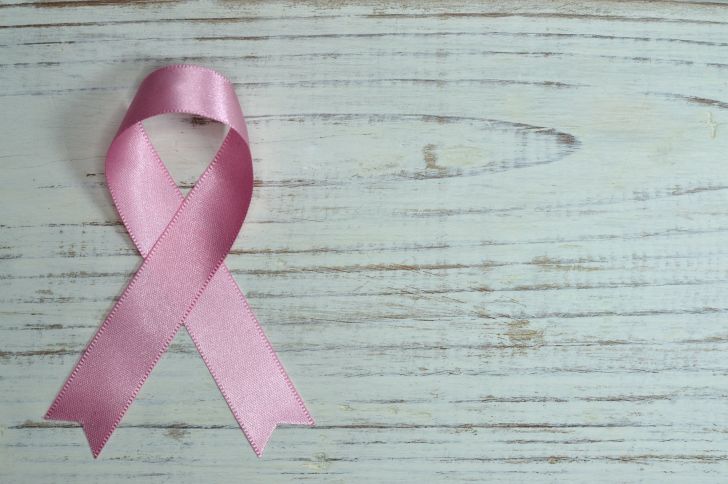Thinking about how to help the society by donating for cancer survivors right now? Be sure to think about your unique dynamic anklet that guide you as you try to support society. Could you keep it simple? Remember that often the little things mean the most.
Below are some of the ways you can support cancer survivors. Yes, financial donations are essential to cancer organizations and the people and programs they help, including research to advance new treatments. But there are many other kinds of contributions you can make that are also valuable.
Things to Donate for Cancer Survivors
If you’re looking for ways to make a difference in the life of people with cancer, consider exploring these options.
Bone marrow
It is a soft, spongy material found in your large bones. It makes more than 200 billion new blood cells every day, including red blood cells, white blood cells, and platelets. But for people with bone marrow disease, including several types of cancer, the process doesn’t work correctly. Often, a bone marrow transplant is a person’s best chance of survival and a possible cure. The good news is that donating bone marrow can be as easy and painless as giving blood.
Donate blood or platelets
Extra blood is critical to many people with cancer, during and after treatment. Two types of blood donations needed are:
- Whole-blood donation- The actual contribution takes about ten minutes—approximately 1 pint of blood through a vein in your arm is collected. Therefore, you can donate blood after every fifty-six days.
- Platelet donation- You can donate just a portion of your blood called platelets, which form clots that help stop bleeding. You can donate platelets once a week, up to twenty-four times a year.
Donate umbilical cord blood
Those crucial blood-forming cells for bone marrow transplants are in umbilical cord blood. The painless and straightforward 5-minute donation process is safe for your baby.
Biospecimens.
Donating biospecimens can help advance cancer research. Biospecimens are samples of materials from the human body, such as urine, saliva, blood, tissues, or cells from biopsies or surgeries. Researchers need samples from people who don’t have cancer and those who do. If you’re having a biospecimen collected during a medical procedure or test, ask your doctor how you can donate.
Time
Cancer organizations offer all kinds of volunteer opportunities. Contact a local cancer group that interests you to find out how you can help. Help a family member, friend, or community member with daily tasks that can become overwhelming during cancer treatment. For example, ask if you can bring a meal, provide transportation to an appointment, or lend an ear. Talking with some one who has cancer and providing a comforting presence can be as crucial as providing practical support.
Hair for Cancer Survivors
Several organizations can turn your long locks into free or low-cost wigs for people experiencing this emotionally challenging side effect. A wig can provide self-confidence, strength, and hope. First, however, you need to carefully follow your chosen organization’s donation requirements and haircut instructions.
Goods
You can donate clothes you’ve outgrown, books that you’ve read, and furniture you don’t need anymore can raise vital funds for cancer organizations that run thrift shops. Ask your local hospital or cancer center if they run a charity shop or know of any local cancer organizations. Always add the receipt to reduce tax deduction.
Jewelry and Keepsakes
Many in-person and online stores sell jewelry and keepsakes to raise awareness for nearly every type of cancer. In many cases, some or all proceeds go to cancer research. These products are customized using the campaign’s color—for example, pink for breast cancer. You may also be able to customize jewelry with charms that carry a particular message like hope, joy, courage, or love. You may also want to add a personal quotation.
Gifts
Gifts are a meaningful way to show someone you care.
- Aromatherapy products- It may help some people manage cancer-related symptoms. These scented products include pillows, eye masks, and even stuffed animals made with essential oils.
- Gifts of Warmth and Style- Thinning hair and chemotherapy-related hair loss can make cold weather uncomfortable. Also, some people with cancer prefer not to wear hats or wigs, but cold temperatures can change that. Warm hats, scarves, and bandanas can help keep your friend covered in style. Don’t focus on appearance, though. Let them know those head coverings are always optional.
Pamper
Be creative with the help you offer. Asking “how can I help?” can be broad and overwhelming for your friend.
- Help with chores around the house.
- Cook dinner and drop it off. Ask about dietary restrictions beforehand.
- Schedule a night of takeout food and movies together.
Ways to Support Cancer Survivors
Here are some more ways on how to support cancer survivors:
Contact Volunteer Coordinator
Reach out to the volunteer coordinator at your local cancer center or hospital to find out how you can get involved. The time commitment is usually flexible, allowing you to volunteer in a way that fits your schedule.
Contact Local Religious Community
Reach out to your local religious institution, school, hospital, or community group to organize a fundraiser for a cancer-related cause. Whether it’s for an individual, a treatment center, or a cancer nonprofit organization, you can hold the fundraiser in person or online. Donors can contribute, and the funds raised will directly support those affected by cancer, providing essential help during their journey.
Join a Support Group
Join a support group to offer your experiences and insights to others affected by cancer. Whether you join a group at your local cancer center or participate in a virtual support group online, your shared wisdom can provide valuable support to those at different stages of their cancer journey.
Start a Donation for Cancer Survivors
Make a donation to support cancer research, provide essential services, or contribute to specialized programs like Reel Recovery, which offers free fly-fishing retreats for cancer survivors to aid in their healing through nature.
Donations can also help with basic needs such as housing, transportation, and support for those traveling for cancer treatments. Funding cancer research can advance the development of new therapies.
Other Fun Ways
You can make a significant impact in the fight against cancer in various ways. Start by creating “goody bags” for a local cancer center. Then, fill it with personal care items like lip balm, hand sanitizer, and lotion, or fun items such as hard candies, books, and encouraging notes.
Consider organizing a sign-up list to coordinate meal deliveries for individuals battling cancer, using a free app like MealTrain to streamline the process. This app helps people sign up to bring meals on specific dates and can include details about favorite meals and dietary preferences.
Offer a caregiver a much-needed break by staying with their loved one for a few hours. Additionally, provide gift cards to cover gas costs for those who need a ride to their treatments but cannot drive themselves. Lastly, you can organize musicians from local religious institutions or schools to perform for patients during their treatments, lifting their spirits and providing comfort through music.
Start by sharing your personal story—how has cancer impacted your life? Whether it’s offering words of encouragement or sharing lessons learned, your story could provide the hope someone else needs. You can also lead a fundraiser by inviting your friends, family, and community to join you in starting a campaign to benefit the community. Fundraising is a powerful way to rally support and make a difference.
Lastly, connect with others who understand your journey. If you’re a cancer survivor, consider joining an online discussion forum for Post-treatment Survivors. Being part of a supportive community can provide strength and comfort during challenging times.
Conclusion
Every bit of donation to the cancer survivors helps to serve families. I hope this article was insightful and would ease the list of assistance needed by the cancer charities.
Sources:
(https://www.cancersupportcommunity.org/blog/5-ways-support-cancer-survivors)




